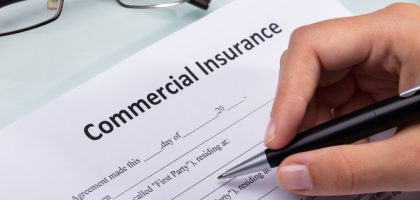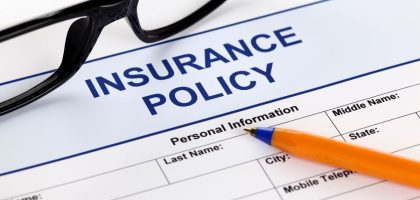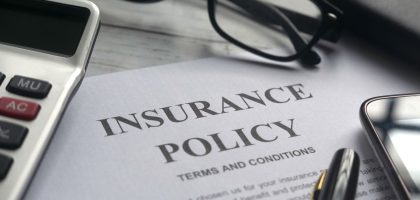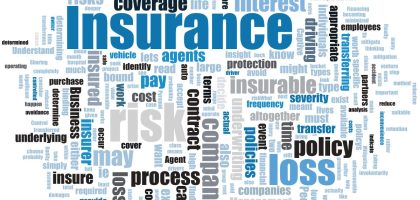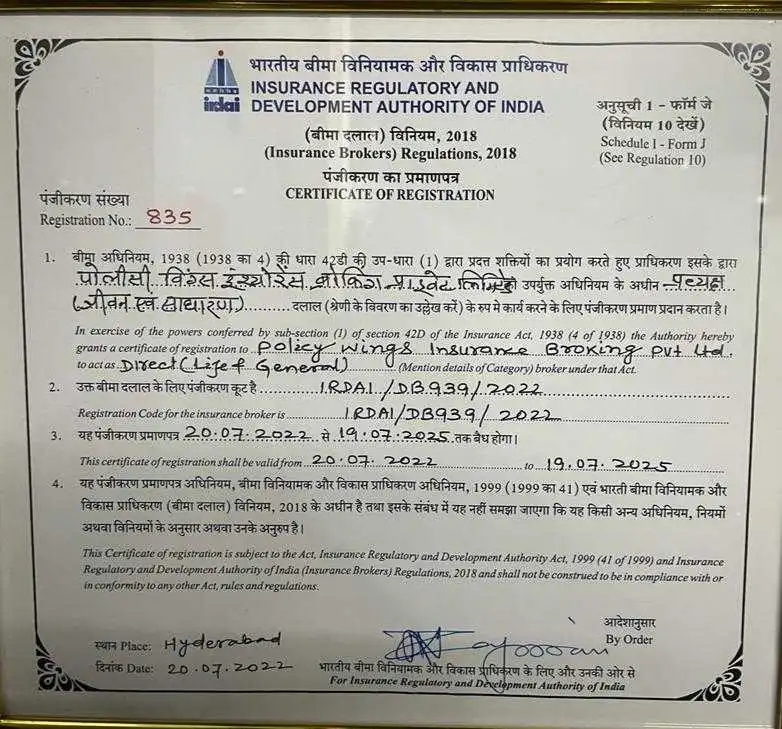Personal Accident Insurance Plans
Personal Accident Insurance Plans
Accidents are unexpected events that can have a profound impact on our lives, leading to physical, emotional, and financial repercussions. Accidents can happen anywhere – on the road or at home. In a world where uncertainties prevail, having a safety net to protect yourself and your loved ones from the aftermath of accidents is essential. While health insurance takes care of the cost of medical treatment incurred due to accidents, accidental disability, and deaths do not fall under the purview of health insurance this is where Personal Accident Insurance (PA) comes into play. The following article is a comprehensive guide, as we strive to help you understand the intricacies of Personal Accident Insurance, its benefits, coverage, types, eligibility, costs, and much more.
What is Personal Accident Insurance?
Personal Accident Insurance is a specialised type of insurance that provides financial protection to individuals in the event of accidental injuries, disabilities, or even death. It is designed to alleviate the financial burden that may arise due to medical expenses, loss of income, or other unforeseen costs resulting from accidents.
Latest Statistics about Accidents in India
Accidents are uncertain. According to government data, the number of road accidents in India has been steadily increasing over the years. As per the research on Road Accidents in India carried out by Smt. Indu Sharma, In India road accidents, are the leading cause of hospitalisation, deaths, and disabilities. During the year 2021, a total number of 4,12,432 road accidents were reported in India, out of which 1,53,972 were fatalities and 3,84,448 injuries. These statistics reiterate the importance of having adequate insurance coverage to safeguard oneself against the potentially devastating consequences of accidents.
How Can a Personal Accident Policy Help You?
A Personal Accident policy can offer a comprehensive safety net by covering a wide range of accident-related expenses. Buying a Personal Accident Policy can help in the following ways:
- Accidents are unpredictable and can occur at the most unexpected time. Having a PA policy will help you cover the medical expenses incurred due to accidental injuries. This includes hospitalization, surgery, ambulance charges, and other related costs.
- The premium of a Personal Accident Policy is low thereby making it one of the most sought insurance tools that is both affordable and accessible.
- In the event of the death of the policyholder due to an accident, the nominee receives a lump sum pay thereby offering financial support to your family in your absence.
- You are entitled to receive compensation in the event of loss of income occurring due to disability caused by an accident.
- You can avail of tax benefits on the premium paid towards availing a Personal Accident Insurance.
Thus, the above reasons make the Personal Accident Insurance plan a must-buy insurance product in your investment basket.
Benefits and Advantages of Having a Personal Accident Plan
Buying Personal Accident Insurance is the need of the hour. If you have not yet purchased here are some of the most important benefits that the Personal Accident Insurance plan offers:
- Financial Security: Buying Personal Accident insurance ensures that you and your family are financially secure even in the face of unexpected accidents.
- Peace of Mind: Knowing that you have coverage for accident-related expenses provides peace of mind and reduces stress during challenging times.
- Customisable Coverage: Personal Accident policies often come with customizable options, allowing you to customize the sum insured as per your specific needs and circumstances.
- Affordability: Personal Accident Insurance is relatively affordable compared to other types of insurance, making it accessible to a wide range of individuals.
- Global Coverage: Some Personal Accident policies offer worldwide coverage, ensuring protection irrespective of the region or place.
- Easy Claim Process: The claims process for Personal Accident Insurance is straightforward, allowing you to focus on recovery rather than paperwork.
Types of Personal Accident Policies Available in India
Personal Accident Policies are available in India in two types namely:

Under this plan, one person is covered. This can be taken for yourself or someone in your family.

This plan is designed for a group of people. Under this plan, a company avails group insurance for their employees to offer them insurance coverage. The group personal accident plan can be purchased by an employer for their employees, banks can purchase it for their account holders, clubs can purchase it for their club members, etc. Under a Group Personal Accident Plan a single policy is issued to cover all the named members within the group.
Eligibility and Who Can Buy
Eligibility criteria for Personal Accident Insurance can vary between insurance providers and policy types. Generally, individuals between the ages of 18 and 70 can purchase Personal Accident Insurance policies. The insurance companies have the right to decide the eligibility criteria related to age restrictions depending upon the type of policy and coverage.
Why do You Need Personal Accident Insurance?
The need for Personal Accident Insurance is evident as India is witnessing a surge in accidents. Any accident can leave a dent in the emotional as well as financial well-being of an individual and his/her family. Therefore buying personal accident insurance is the need of the hour as it offers a safety net against the cost of medical expenses occurring due to accidents. Apart from covering the cost of medical expenses the Personal Accident Insurance Policy also covers loss of income occurred due to death or disability caused due to an accident. Thus having a PA policy in place ensures that you and your family are protected against these uncertainties.
Coverage and Exclusions
Personal Accident Insurance provides coverage for a range of accidental events, including:
Accidental Death: The policy pays a lump sum amount to the nominee in case of the insured’s accidental death.
Permanent Total Disability: Compensation is provided if the insured becomes permanently and totally disabled due to an accident.
- Permanent Partial Disability: If the accident results in a specific loss or impairment, such as the loss of a limb, the policy offers a percentage of the sum insured as compensation.
- Temporary Total Disability: Coverage is extended for temporary disabilities that prevent the insured from working for a certain period.
- Transportation of Mortal Remains: The policy may cover the expenses associated with transporting the insured’s mortal remains in case of accidental death.
While coverage under the Personal Accident Insurance policy is not offered in the following cases:
- Self-inflicted injuries
- Injuries due to intoxication
- Participation in hazardous activities, and
- Pre-existing disabilities.
Thus, above are the exclusions of a Personal Accident Insurance Policy.
Top Personal Accident Health Insurance Plans
Several insurance companies in India offer comprehensive Personal Accident Insurance plans, each with its unique features and benefits. Some of the top Personal Accident health insurance plans include
| Name of the Personal Accident Insurance Plan | Benefits |
| 1. Navi Health Insurance PA Policy |
|
| 2. Aditya Birla Capital PA Plan- Activ Secure |
|
| 3. Bajaj Allianz PA Plan- Premium Personal Guard Plan |
|
| 4. Bharti AXA PA Plan- Insurance Smart Individual Personal Accident |
|
| 5. ICICI Lombard PA Plan- Personal Protect Personal Accidental Policy |
|
Standalone Personal Accident Policy vs. Personal Accident Add-on
Standalone Personal Accident policies provide dedicated coverage solely for accidents and their related consequences. On the other hand, a Personal Accident add-on as the name suggests is an additional benefit wherein when purchased it can be attached to an existing health or life insurance policy thereby enhancing the coverage to include accidents.
Personal Accident Coverage in Car Insurance Policies
Car insurance policies in India typically include a mandatory Personal Accident (PA) cover for the owner-driver. This cover provides compensation in case of accidental death or disability of the owner-driver while driving the insured vehicle. The coverage amount is usually a specified limit, often Rs. 15 lakhs.
So, if you have a standalone personal accident plan, you do not need to opt for separate coverage along with your car insurance plan, as long as you have Rs 15 lakhs of PA coverage.
Difference between accidental insurance and life insurance:
A personal accident insurance plan is offered by a general insurance company while a life insurance plan is offered by a life insurance company. So, there is a fundamental difference between the two as a PA plan is a low-cost survival plan in the healthcare industry, while life insurance is a protection plan in the life insurance space.
| Particulars | Accidental Insurance | Life Insurance |
| Purpose | Offers insurance safety net in the event of an accident only | Offers insurance safety net throughout life and also in the event of death |
| Coverage | Limited to accidental injuries and death | Encompasses natural and accidental death |
| Premium | Usually Lower Premium | Premiums can be higher, depending upon various factors like age, gender, etc. |
| Policy Structure | Standalone Policy or add-on | Standalone policy or endowment or term plan |
| Benefit Payout | Lump sum payment in case of accidents | Lump Sum or Periodic payments as per the policy document |
Difference between Accidental Insurance and Critical Illness Insurance:
Both PA and CI plans are in the same healthcare industry and are fixed-benefit health insurance plans but the basic purpose of both plans is quite different as one caters to the risk of meeting an accident while the other protects you financially in case of any critical ailment.
Particulars | Accidental Insurance | Critical Illness Insurance |
Coverage | Accidental injuries and disabilities | Specific critical illnesses specified in policy |
Benefit Payout | Lump sum payment upon qualifying events | Lump sum payment upon diagnosis of illness |
Scope | Covers accidents only | Covers specified critical illnesses |
Premium | Generally lower cost | Premiums may vary based on coverage |
Policy Structure Riders | Standalone policy or add-on | Standalone policy or as part of riders |
How to Buy a Personal Accident Policy: Online vs. Offline?
You can purchase a Personal Accident policy through both online and offline channels:
- Online: Many insurance companies offer the option to buy Personal Accident policies online. This method is convenient and allows you to compare policies, calculate premiums, and make payments from the comfort of your home.
- Offline: If you prefer a personal touch, you can visit the insurer’s branch office or get in touch with an insurance agent to discuss your requirements and purchase the policy.
Documents Required for Personal Accident Policy
When applying for a Personal Accident policy, you typically need to provide:
- Proof of Identity: Aadhar card, passport, PAN card, etc.
- Proof of Address: Utility bills, rental agreement, etc.
- Age Proof: Birth certificate, school/college certificate, etc.
- Passport-sized Photographs
- Proposal Form: Duly filled and signed.
Cost of Accident Insurance and Coverage Amount
The cost of Personal Accident Insurance varies based on factors like age, coverage amount, policy type, and additional riders. Generally, the premiums are affordable, making it a cost-effective way to ensure financial protection against accidents.
The coverage amount you choose should consider factors like medical expenses, income replacement, and other potential financial obligations. Usually, as a thumb rule try to buy the coverage amount of the Personal Accident Insurance 100 times your monthly income.
Filing an Accidental Insurance Claim
In the unfortunate event of an accident, follow these steps to file a claim:
- Intimate the Insurer: Inform the insurance company about the accident as soon as possible. You can do this by calling their helpline or visiting their website.
- Submit Required Documents: Provide all necessary documents, including the claim form, medical certificates, accident report, and any other relevant paperwork.
- Claim Processing: The insurance company will assess the claim and process it based on the provided information and documents.
- Settlement: If the claim is approved, the insurer will provide the agreed-upon compensation amount.
Documents Required for Accidental Death/Impairment Claim
For an accidental death or impairment claim, you typically need to submit:
- Death Certificate: In case of accidental death.
- Medical Reports: If the claim is related to injuries or disabilities.
- Police Report/FIR: If the accident was reported to the police.
- Claim Form: Duly filled and signed.
- Nominee’s Identity Proof: Aadhar card, passport, etc.
- Hospitalisation and Treatment Records: in case of accidental injuries and/or disabilities.
Tax Benefits under a Personal Accident Policy
Under Section 80D of the Income Tax Act, Tax benefits can be availed for the premium paid towards a Personal Accident policy. However, the exact benefits and eligibility criteria may vary based on the prevailing tax laws and regulations.
To Sum Up!
Personal Accident Insurance is a vital tool for protecting yourself and your loved ones from the uncertainties and financial setbacks that accidents can bring. By understanding the various aspects of Personal Accident Insurance, its benefits, coverage, types, and claims process, you can make an informed decision to secure your future and maintain peace of mind in the face of unforeseen events.
Frequently Asked Questions
No, Personal Accident Insurance specifically covers accidents, while Health Insurance provides coverage for medical expenses due to illnesses and injuries, including accidents.
Yes, you can purchase multiple Personal Accident policies from different insurers to enhance your coverage. However, you need to disclose all existing policies during the application process.
Most policies have a waiting period, usually 30 days, during which no claims are entertained. However, this waiting period may be waived in case of accidental injuries.
Typically, pre-existing disabilities are excluded from coverage under Personal Accident Insurance. The policy is designed to cover unforeseen accidents.
Many insurers offer Personal Accident policies without the need for extensive medical examinations. However, some policies may require a basic medical assessment.
The age limit for purchasing Personal Accident Insurance varies among insurers and policy types. Generally, individuals between 18 and 70 years of age are eligible.
Leading Health Insurance Companies





Latest Blogs
Introduction Business Owners Policy India and BOP insurance provide a streamlined, cost effective safety net for small and medium enterprises. In India, where operational risks range from property damage to legal liability, a business owner’s policy provides flexible coverage and strong compliance making it the perfect choice for companies wishing to combine several insurance policies under one roof. Understanding the Scope of a BOP Insurance for Indian Businesses Typically, a Business Owners Policy combines necessary business coverages into a single, specially designed product that is adapted to the complex requirements of Indian commercial enterprises. In general, these bundles include: Property insurance protects tangible assets such as structures, equipment, supplies and fixtures. Liability insurance that guards against third party claims of harm or property loss brought on by company operations. BOP insurance offers simplified administration, affordable premiums and improved clarity by combining these essential protections; this is particularly beneficial given India’s heterogeneous regulatory and sectoral environment. Property Coverage: Protecting Business Infrastructure and Inventory Property insurance is the foundation of a BOP. It protects material assets from dangers like fire, theft, rioting, natural disasters and other disasters. These include business buildings, plant and machinery, equipment and stock. Insurers have to precisely define covered perils, exclusions and valuation techniques in compliance or accordance with India’s General Insurance Business Regulations and Compliances. To prevent claims frictions it is important for the businesses to make sure that the policy wording clearly defines all the covered risks (e.g. fire and related hazards, flood, storm and burglary) and also specifies the valuation bases (e.g. indemnity, replacement cost or market value). Realistic asset values and policy limits that are in line with day to day operational realities are essential components of a legally sound policy. Liability Coverage: Shielding Against Third Party Claims In order to protect against third party claims for property damage or bodily injury resulting from routine business operations, liability protection under a BOP is essential. A duty of care is emphasised by India’s tort laws and statutory provisions, which hold companies liable for negligence even in routine operations. Usually, BOP provisions pay for settlement sums, medical bills or legal defence costs. The policy must be in line with the operational scope of the business because liability landscapes vary, ranging from small offices to manufacturing setups or shopfront locations. Systematic, efficient orequitable claim settlements are made sure by clearly stating the limitations, exclusions (e.g. professional liability) and claim procedures. Business Interruption Coverage Costly revenue interruptions can result from disruptions caused by fire, flood or other hazards. Business interruption coverage, which compensates for lost revenue and covers short term relocation or replacement costs while operations are resumed, is how BOP insurance handles this. Clearly stated indemnity triggers, waiting periods and the duration of coverage are essential given India’s regulatory emphasis on equitable settlement practices. Companies should verify whether the policy accounts for increased expenses during downtime and whether it determines loss based on actual earnings or projected operational income. Additional or Optional Add Ons in BOP Insurance Insurers in India may provide additional modules to enhance protection even though the standard BOP framework combines property, liability and business interruption coverage: Equipment Breakdown Cover: Guards against electrical or mechanical malfunctions. Cash or negotiable instruments stored on site are protected by money and securities insurance. Employee dishonesty: Protects against dishonest behaviour by staff members. Glass Damage: Protection against harm to windows or fixtures made of glass. Extensions for Natural Disasters: Adding coverage for cyclones or earthquakes where necessary. It depends on the industry and the main exposure profile of the company. These options may be beneficial whether it is a professional office, cafe, small manufacturer or textile retailer. To promise or guarantee enforceability and transparency it is advisable to make sure or confirm that any add ons relevant to the regulations set forth by the Insurance Regulatory and Development Authority of India (IRDAI). Legal Regulatory Framework Clarity and transparency in a policy is important in Indian insurance jurisprudence. Courts interpret ambiguous terms against the insurer by applying the contra proferentem principle. Uncertain exclusions, for instance, weakened insurer’s positions in cases like United India Insurance Co. Ltd. v. Lotus Petrofils (P) Ltd., leading to rulings in favour of the insured. BOP policies must therefore state: Well defined covered hazards and specified exclusions (e.g., hostile fire, unseaworthiness, standard exclusions). Conditions for valuation claims in order to ensure predictable and enforceable indemnity, particularly for stock and property. Succinct, clear definitions of “premises”, “business interruption,” and other key terms. The policy’s legal integrity is strengthened by making sure these components comply with insurer disclosure requirements under the Insurance Act and related regulations as well as IRDAI mandated product filing standards. Evaluating BOPs for Coverage Suitability in India Indian companies, whether they are small manufacturers, retailers or service providers, should evaluate coverage in relation to their unique risk profile, geographic location and legal requirements when contemplating a business owner’s policy. Important things to think about are: Location and exposure of the business, such as areas vulnerable to earthquakes, floods or high theft rates. Accurate asset values are necessary to establish suitable boundaries. Operational sensitivity and continuity requirements, particularly in cases where disruptions have a significant impact on profitability. The way third parties interact shapes the risk of liability. Legal soundness, unambiguous contract language, IRDAI compliance and matching coverage to actual exposures rather than merely meeting regulatory minimums should be the main topics of an informed discussion with insurers. The Strategic Value of a BOP Insurance Policy For Indian businesses looking for comprehensive risk management effectiveness, a well designed BOP insurance plan can be a valuable strategic asset. Businesses can gain from more transparent terms, consistent coverage and possibly lower combined premiums by combining several essential coverages: property, liability, business interruption,and optional extensions under a single policy. A business owner’s policy can be transformed from insurance into a governance tool with clear content, regulated product filing and legally sound wording. It protects corporate continuity from routine
...Introduction Underinsurance in businesses is one of the most common yet overlooked financial risks faced by companies in India. If coverage limits, terms or valuations don’t align with actual risk, a company may have insurance policies in place but still be at risk. To find these gaps, match coverage to operational realities and make sure your policies actually protect you in the event of a claim, it is imperative to conduct a business insurance audit in India. Knowing Underinsurance: It’s Not Just About Low Coverage When the scope of coverage or sum insured is insufficient to cover the actual loss incurred, underinsurance occurs. It usually results from out of date asset valuations, operational changes that aren’t taken into account or a lack of specific coverage for emerging risks in India. It is the insured’s responsibility to declare accurate sums insured and maintain policies up to date; the Insurance Act of 1938 and IRDAI regulations do not automatically prevent underinsurance. In reality, a lot of claims are lowered under the “average clause”, which states that if assets are undervalued, compensation will be lowered proportionately. The Effects of Underinsurance on Indian Businesses Underinsurance can have serious financial repercussions. Due to proportional settlement rules, the insurer may only pay half of the amount if, for instance, your factory’s machinery is worth ₹10 crore but is only insured for ₹5 crore and you sustain a ₹2 crore loss. This strategy has been supported by Indian courts. The average clause was upheld by the court in United India Insurance Co. Ltd. v. Pushpalaya Printers because the insured had assets that were undervalued despite their belief that they were “adequately” insured. Step 1: Conduct a Comprehensive Business Insurance Audit In a business insurance audit in India, all policies of property, liability, cyber, marine, directors and officers (D&O), employee benefits and sector specific coverage are methodically reviewed. Through this process, you can make sure that the policy terms, coverage scopes and sums insured reflect the current state of your business. An audit ought to confirm: Precise asset appraisal (at replacement or reinstatement value) Revised revenue numbers for business interruption insurance Coverage types’ applicability in light of changing risk exposures Step 2: Reassess Asset Valuations Annually Your insurance limits may soon become out of date due to capital investments, inflation and currency fluctuations. Undervaluing assets may be considered misrepresentation since IRDAI requires a fair presentation of risk. Annual valuations help keep your insurance in line with replacement costs, especially for inventory, plant and machinery. Step 3: Review Policy Exclusions and Limitations Underinsurance is caused by both omitted exclusions and inadequate sums insured. Many Indian companies find out too late that their policies do not cover losses from certain risks, such as floods or cyberattacks. Any missing extensions should be found during a policy review, including: Property coverage for earthquakes and cyclones Protection against ransomware and data breaches for online threats Coverage for supply chain interruptions in manufacturing or logistics companies Step 4: Align Coverage with Operational Changes New products, enlarged service areas or new locations all bring new risks as businesses change. These modifications must be reported to the insurer in accordance with the Indian insurance law’s recognition of the principle of utmost good faith. As demonstrated in Satwant Kaur Sandhu v. New India Assurance Co. Ltd., where failure to disclose material facts voids the policy, failure to do so may result in claims being denied. Step 5: Evaluate Business Interruption Coverage Businesses are especially vulnerable to underinsurance when it comes to business interruption (BI) coverage. Since many policies are predicated on antiquated revenue estimates, businesses are left vulnerable during protracted outages. Accurate BI coverage in India ought to show: Present yearly turnover Expected expansion Reasonable turnaround times for operations Step 6: Examine adherence to contractual and statutory insurance requirements Certain industries are mandated to have insurance under the Indian Acts and Laws. For example the Public Liability Insurance Act of 1991 requires specific third party liability coverage for industries that are disastrous, hazardous or catastrophic and the Motor Vehicles Act requires minimum liability coverage for carriers. In order to avoid penalties and ensure that contracts with clients, landlords or lenders are upheld a business insurance audit ensures that all of these legal requirements and compliances are met. Step 7: Track Claims History and Adjust Accordingly Examine whether the terms and coverage limits were adequate if you have had claims within the last 12 months. Trends in claims that are rejected or only partially resolved could point to ongoing underinsurance or misaligned policies. Future disputes are avoided through proactive adjustments. Legal Principles Reinforcing the Need to Avoid Underinsurance When assets are undervalued, Indian courts have consistently upheld insurer’s rights to apply proportional settlement. They also reaffirm the insured’s obligation to accurately and completely disclose risk. Thus, underinsurance can result in disagreements that escalate into expensive litigation in addition to lowering claim payouts. Furthermore, companies still have an obligation to maintain sufficient coverage even though insurers are required by the IRDAI’s Protection of Policyholder’s Interests Regulations to provide clear explanations of policy terms. How to Maintain Adequate Coverage Year Round Avoiding underinsurance is a continuous process. It calls for: Every year, all policies must be audited Revaluations of assets in accordance with market replacement costs When operations change, regular risk assessments are conducted. Speaking with brokers or legal counsel who are knowledgeable about the risks unique to a given industry Businesses can make sure they maintain coverage that actually protects them by instituting these measures. Conclusion In businesses, underinsurance is frequently an undetectable risk until calamity occurs. Businesses can guard against operational failures, legal issues and financial gaps by putting in place a structured business insurance audit India. The most resilient companies view insurance audits as an essential component of strategic risk management rather than as a compliance exercise. In a market that is becoming more unpredictable, this strategy makes sure that coverage changes with the company to safeguard assets, income and reputation.
...Introduction Annual insurance checklist is not just a year end formality, it is the most important step in regulating an in-depth business insurance review. Businesses have to make sure that their insurance portfolio stays operationally as well as functionality to be relevant, financially sound and compliant with the law in India’s complicated regulatory and business environment. An annual review aids in finding gaps, updating coverage to reflect expansion and bringing policies into line with evolving market conditions, industry standards and legal requirements. Why does Annual Insurance Reviews Matter in India? Legal basis for insurance contracts is established by the Insurance Act of 1938 and created by the Insurance Regulatory and Development Authority of India (IRDAI) Rules. Compliance by itself, though, does not ensure sufficient protection. Business risks change as a result of supply chain modifications, new technology deployments and territorial expansion. Inadequate indemnity or claims denial may result from failing to modify insurance coverage appropriately. Indian courts have stated again and again that it is the responsibility of businesses to ensure correct and accurate policy declarations and appropriate sums insured which are particular in cases like United India Insurance Co. Ltd. v. Pushpalaya Printers. As a governance tool, an annual checklist makes sure these regulations/obligations are fulfilled. Step 1: Review All Current Policies Gathering all of your current policies, property, liability, cyber, marine, directors & officers (D&O), professional indemnity, employee benefits and any specialised industry coverage is the first step in your yearly insurance checklist. Examine each policy’s endorsements, exclusions, limitations and declarations in relation to how your company currently operates. For example, the amount insured for liability or business disruption coverage which might not be sufficient your revenue can increase significantly. According to the “average clause” found in many policies, underinsurance is a frequent cause of partial claim settlements in India. Step 2: Verify the Compliance with IRDAI and other Legal Regulations From legal frameworks such as the IRDAI (Protection of Policyholder’s Interests) Regulations, IRDAI requires fair claims settlement procedures and transparent disclosure. Your business insurance review should verify that your policy structure complies with any industry specific statutory requirements and that your insurer is compliant. For instance, certain industries such as the manufacturing of hazardous materials or transportation are required by law to carry third party liability insurance. There may be fines and legal repercussions for not maintaining these statutory coverages. Step 3: New Emerging Risks The landscape of business risk changes annually. Because of India’s growing digitisation, cyber insurance is becoming essential, especially in light of the Information Technology Act of 2000’s increased regulatory scrutiny and the rise in data breach incidents. In a similar way, property and liability exposures may have changed your business and embraced hybrid working models. That’s why an annual checklist should assess the need for new coverage types, like intellectual property (IP) protection, environmental liability or supply chain disruption insurance. Step 4: Reassess Policy Limits and Deductibles Verifying that limits and deductibles are still appropriate is one of the most often neglected items on an annual insurance checklist. The coverage from the previous year may soon become insufficient due to inflation, currency fluctuations and rising litigation costs. Regardless of the actual loss, Indian courts have maintained the insurer’s authority to reject claims for amounts over policy limits. Your limits should therefore update to reflect any expansions, equipment upgrades or higher value contracts you have taken on. Step 5: Review Claims History and Insurer Performance A review of business insurance covers more than just coverage; it also evaluates the level of service provided by your insurer. Look for trends in the claims from the previous year: Did there have to be any delays? Were settlements equitable? Did disagreements arise because of exclusions? Although the IRDAI still has complaint redressal procedures in place, proactive review assists you in moving to insurers with superior claim handling records before problems get out of hand. Step 6: Align Coverage with Contractual and Lender Requirements Certain insurance obligations are imposed by many contracts, especially those with clients, vendors, or financial institutions. These could be named insured clauses, subrogation waiver clauses, or minimum liability limits. During your annual review, ensure that your policies meet these obligations. Even in the absence of a loss, noncompliance may result in financial penalties and contract violations. Step 7: Update Beneficiaries and Named Insureds Over time, key personnel, partnerships and business ownership structures may change. The beneficiaries, additional insureds and named insureds must all be updated, according to an annual checklist. This guarantees that payouts reach the right people and prevents disputes at claim time. Step 8: Record the Review for Audit and Governance Objectives It is a good governance practice to keep a written record of your annual insurance checklist and review procedure. It shows regulators, auditors and stakeholders that due diligence has been done. Additionally, documentation can be used as a point of reference when negotiating insurance renewals or changing providers. Legal Principles Supporting Regular Reviews The idea that insurance contracts are founded on the highest good faith requiring the insured to accurately disclose material facts is continuously upheld by Indian case law. The Supreme Court emphasised in Satwant Kaur Sandhu v. New India Assurance Co. Ltd. that a policy may be nullified due to misrepresentation or non disclosure. By making sure that all modifications to operations, assets and liabilities are fully disclosed prior to renewal, an annual review helps to reduce these risks. Conclusion Insurance is turned from a passive expense into an active business tool with the help of a well organised annual insurance checklist. It improves claim defensibility, reduces gaps, maximises costs and guarantees legal compliance. Indian companies can strengthen their resilience, appease partners and regulators and protect themselves from new risks in a market that is becoming more and more unstable by approaching the business insurance review as a governance exercise rather than an administrative task.
...Introduction Insurance for Tech companies and SaaS business insurances in India are very important nowadays relating to corporate risk management plannings and strategies. For every tech company adapting insurance coverage for everyday functional realities and legal regulations is essential for technology business, whether they are large or in small scale SaaS providers, mid sized software companies, or upcoming startups. Protecting assets, brand reputation, and its continuity in a fast developing digital economy mandates synchronising your insurance portfolio directly to contractual exposures, market expectations, and mainly regulatory standards. Governing Legal Regulations of Insurance in India The Insurance Regulatory and Development Authority of India (IRDAI) is the one which regulates the insurance sector in India and is governed by the Insurance Act, 1938 (as amended). There is no statute that mainly explains or covers for technology specific insurance, but the Insurance Regulatory and Development Authority of India (Registration of Indian Insurance Companies) Regulations and IRDAI (Insurance Advertisements and Disclosure) Regulations are the main two IRDAI regulations that portrays its impacts on design, marketing, and approval of insurance products pertinent to tech companies, This means that insurers must follow to IRDAI’s regulatory requirements, product standards, and solvency rules specifically for tech companies. It is your responsibility as the insured to make sure that the policy documents comply with IRDAI and that the coverage is specifically customised to your technology risk profile. Professional Indemnity (Errors & Omissions) for Tech Service Providers Errors & Omissions (E&O) insurance is also known as professional indemnity insurance which protects against allegations of carelessness, contract violations or poor service. To avoid confusion, insurance contracts must separately define all the terms such as “software error”, “system failure”, or “data breach” and they must be in accordance with the Indian Contract Act of 1872. Furthermore, uncertainties under insurance terms are interpreted in the insured’s favour, according to case laws, as in United India Insurance Co. Ltd. v. Lotus Petrofils (P) Ltd. IT companies are the ones who have to carefully draft their coverage clauses to prevent legal issues, disputes or any violations of the Insurance Ombudsman Rule of 2017.. Cyber Liability and Data Protection Compliances Cyber liability insurance is important as well for SaaS companies and data driven tech/IT companies. Strict requirements for safeguarding and protecting sensitive and personal data are imposed by the Information Technology Act of 2000 and also by the seminal Puttaswamy ruling, which explicitly acknowledged the constitutional right to privacy under Article 21 of Indian Constitution. Fines, breach notification expenses, client compensation, and business interruption are the regulators brought on by cyberattacks that must be covered by a strong and reliable cyber policy. Both first party (own losses) and third party (client claims) liabilities should be covered. Business Interruption Cover for SaaS Revenue Models Because SaaS providers depend on subscription based revenue streams, business interruption (BI) insurance is specifically crucial to them. Significant losses may come from a third party service provider failure or system outage. To be in line with the SaaS operating model, policies must determine indemnity based on actual recurring revenue rather than one time sales. Indian courts have understood that indemnity must correlate with the insured’s actual loss profile, otherwise claims may be denied. Directors & Officers (D&O) Liability Directors and officers may be held personally accountable under the Companies Act of 2013 for the non compliance, poor management, or false fundraising statements. Leadership is safeguarded from such claims by D&O insurance, which pays for settlements and defence expenses. For SaaS and tech companies that are developing and have strict investor and regulatory supervision, this is especially important. Intellectual Property (IP) Protection Insurance Tech firms mostly depend on trademarks, licensed code, and proprietary software. High litigation costs can result from disputes concerning the Trade Marks Act of 1999 and the Copyright Act of 1957. Regardless of the fact that you are the claimant or the defendant in an infringement case, intellectual property insurance gives financial favours for defence and damages. IP coverage is enhancing the calculated investment due to the high demand in open source usage and international collaborations. Public and Product Liability Public or product liability insurance is important, if your technology includes hardware, internet devices, or on site installations, even though it is not that common for SaaS providers purely. Furthermore, under the Law of Torts, the liability claims for personal injury or property damage can be very large. Clear terminologies and corrective as well as adequate coverage limits are important for policies in this classification, which are governed by general liability rules under IRDAI guidelines. Case Law Insights Undetermined insurance terms are disadvantageous to the insurer, according to Indian courts. In case such as United India Insurance Co. Ltd. v. Lotus Petrofils (P) Ltd., the contra proferentem principle was imposed, which means that clear terms or exclusion of definitions which are required are interpreted on the behalf of the insured. This exposes how important it is for tech companies to correct negotiations, clear policy terms, particularly in niche markets like IP, E&O, and cyber insurance. Building a strong Insurance Portfolio A SaaS or tech company should take multiple approaches to insurance mainly in India, one of which is Professional Indemnity for Service Failures (E&O). Cyber Liability for Regulatory Exposures and Data Breach Aligning business interruption with SaaS revenue models D&O Liability for Protecting Leadership Defence and enforcement of intellectual property infringement Product and Public Liability for Physical Interfaces Whenever there are major functional and operational changes, like the introduction of new products, geographic expansion, or funding rounds, these layers should be rechecked. Conclusion In India’s rapidly evolving technology sector, SaaS business insurance and other customised risk solutions mainly serve as strategic safeguards planning safe rather than mere formalities. Coordinating policies with the Insurance Act of 1938, IRDAI regulations and sector specific legal regulatory safeguards the company against regulatory functions and reputational risks. Prioritise legal compliance/ regulations, precise/correct policy wording, and alignment of coverage with your actual risk profile positions for your tech business’s sustainability and defensibility growth.
...Introduction Insurance for professional liability: People who work as service providers, consultants, freelancers, lawyers, and accountants in the Indian market still need to think about insurance. As a service provider, insurance helps protect you from financial problems that could happen because of claims of carelessness, mistakes, or missing information in the services you offer. We’ll look at legal norms, regulations, and case law to give you a well researched and interesting view on whether professional indemnity insurance is necessary for your business. Why Bring Up “Professional Indemnity Insurance India” Right Away? Professional indemnity insurance in India gives both clients and professionals double the peace of mind. From building trust with customers to following the law, using this keyword early on makes sure it is seen and relevant. As an option for service providers, it covers modern business risks and works with Indian regulatory frameworks that are changing. What does “Professional Indemnity Insurance” mean? Professional indemnity insurance (PII), which is also called errors and omissions insurance, protects professionals from clients who sue for money because of mistakes, negligence, misrepresentation, or breach of duty. Usually covered are the following: Costs of a legal defence Damages or settlements given Bad advice or leaving things out Section 73 of the Indian Contract Act of 1872 says that people who lose something because of a breach of contract can get money to make up for it. PII is a safety net against these kinds of liabilities. Legal and Regulatory Norms in India a. Rules and regulations India does not require all professionals to have PII, but the following regulatory bodies do: The Institute of Chartered Accountants of India (ICAI) requires practicing accountants to have PII. Its Chartered Accountants Regulations set the minimum coverage at INR 10 lakh to INR 50 lakh. The Medical Council of India (MCI) says that doctors should have malpractice and indemnity insurance to protect themselves from medical negligence claims. Bar Council of India (BCI): Lawyers don’t have to get PII, but many do so to protect their client’s trust and avoid future claims. The Indian Contract Act of 1872 Section73 and 74 of the Indian Contract Act, 1872 say that if one party breaches a contract, the other party is entitled to compensation. For service providers like consultants, architects, and engineers, PII protects them from the legal problems that come up after a breach. Consumer Protection Act, 2019 Clients, under the Consumer Protection Act, 2019, can file complaints for services that are “deficient” or below reasonable standards. PII helps professionals manage legal defense costs and possible compensation arising from such complaints. Common Professions and Relevant Regulations Key industries where PII is particularly pertinent are listed below: Project managers and consultants Even minor mistakes in project planning or advice can expose consultants to serious claims violations of statutory duties, contracts, or fiduciary duties under common law. Software developers and IT services Suits for intellectual property infringement or breach of contract may result from products that don’t perform as promised. PII includes settlements and legal defence. Accountants and Financial Planners Errors in financial advice or audits could result in client demands, regulatory investigations, or harm to one’s reputation. ICAI acknowledges the protective effect of PII and requires minimum coverage. Engineers and Architects Litigation is frequently sparked by flaws in infrastructure, mistakes in design, or noncompliance with building codes (such as the National Building Code). Insurance covers indemnities and defence expenditures. Physicians and Medical Professionals Under the Consumer Protection Act, medical negligence can lead to serious financial and reputational consequences. PII reduces fines and legal expenses even in cases where damages are statutory. Important Case Laws Emphasising the Need a. Bharat Sanchar Nigam Ltd. v. Motorola Inc. (2004) The Supreme Court acknowledged that mistakes in contract performance in this case, the supply of telecom equipment can result in liabilities under Section 73, even though they are not PII specific. When services fall short of agreed upon standards, professionals encounter similar situations. Indian Medical Association v. V.P. Shantha (1995) The Supreme Court ruled that medical services are considered “services” under the Consumer Protection Act. This case made it clear that consumer lawsuits can be brought about by medical negligence, which makes professional indemnity insurance even more important. MCD v. Feeroz Agro Industries (2010) Consumer protection in service delivery was reaffirmed by the Supreme Court. Although it focuses on agro industrial issues, the principle applies to the liability of any service provider, reinforcing the necessity of indemnity protections. What Does PII Cover in India? Coverage may include the following, depending on your policy and profession: Negligence or Inadvertent Mistakes: This category includes results from oversights or errors in the provision of services. Breach of Duty or Contract: Guards against claims for monetary damages brought on by the failure to produce the expected results. Libel and defamation in a professional setting: crucial for public relations firms, marketing agencies, and communication consultants. Intellectual Property Infringement: When third parties make IP claims, software engineers and designers profit. Legal defence costs include attorneys, court fees, and documentation costs. Crisis Management Support: Some policies cover expenses for client notifications, reputation management, or public relations. Why You Really May Need It a. An increasing number of service litigation cases According to PLF (Professional Liability Foundation) reports, increased client expectations and project complexity are driving trends in litigation in India’s consulting, design, IT, and medical sectors. Reputation and Client Trust PII conveys professionalism and risk management, which are essential for big contracts and high end customers like banks, governments, or multinational firms. Business continuity and peace of mind PII makes sure that claims, even if they are unfounded, won’t interfere with business operations, cash flow, or expose personal assets. Adherence to Regulations It is legally necessary to obtain the required minimum coverage if you work in a field that is regulated by the ICAI, MCI, or other specialised bodies. Choosing the Right Plan Factors to cover: Coverage Limit: INR 10 to 50 lakh is normal for professionals
...Introduction Employee group insurance and corporate health insurance plans have become essential components of employer benefits programs in India, particularly following 2020. Organisations with more than 10 employees are required to offer a group medical insurance plan in accordance with IRDAI and ESI regulations. This transition signifies not only compliance but also the changing landscape of legal obligations and employee anticipations. Why Group Health Insurance Is a Legal Essential The social security framework in India is regulated by multiple interconnected laws: The Employee State Insurance Act of 1948 mandates coverage for employees in the organised sector with earnings up to INR 21,000 per month. A. The employer contributes 3.25% and the employee contributes 0.75% of wages. B. Addresses medical care, illness, injury, maternity, disability, family pensions, and funeral costs. Insurance Act of 1938 and regulations set forth by the IRDAI A. The IRDAI regulates the terms, pricing, and transparency of group insurance as stipulated in Section 34 of the Insurance Act. B. On 1 April 2020, the IRDAI mandated insurers to implement affordable group health plans for organisations returning to operations after the pandemic. Code on Social Security, 2020 Consolidates Employee State Insurance (ESI), Employee’s Provident Fund (EPF), gratuity, maternity benefits, and other related benefits into a single framework. Mandatory Coverage: Who & What? Employers with ten or more employees not covered by ESI are required to provide group medical insurance in accordance with the IRDAI circular. Employers subject to ESI are not required to provide supplementary group plans as long as ESI coverage remains in effect. Employees with a monthly income exceeding INR 21,000, who are not covered by ESI, are legally required to obtain group health insurance (GHI) as an alternative. Core Legal Obligations for Employers Obligations of care within common law and statutory frameworks Employers are obligated to ensure workplace health and safety, a responsibility that is both implied in contracts and reinforced by legislation such as the OSH Code 2020. Adherence to the terms set forth by the IRDAI policy The IRDAI mandates disclosures regarding premiums, establishes timelines for claim settlements, and outlines channels for grievance redressal. Insurers are required to provide transparent contracts. Consequences for failure to comply Failure to offer required coverage may attract fines, imprisonment, loss of business licence, and reputational harm. Important Differences Between Individual and Group Health Insurance Structure and cost sharing Group policies: employers pay all or part of the premiums; bulk bargaining can lower expenses. Individual: employee paid, with modifiable coverage. Scope of coverage Group: includes COVID-19 care, maternity, OPD, ambulance, hospitalisation, and pre-existing conditions (often immediate). Individual: may initially rule out pre-existing conditions; requires customised add-ons. Portability Group health plans are subject to IRDAI portability rules, which provide continuity in the event of an insurer change. Legal Precedents & Contractual Implications The UK Court of Appeal looked at implied employer duties in insurance benefit plans in Crossley v. Faithful & Gould (2004). Group insurance provisions must be explicitly incorporated into employment contracts in India, with any ambiguities being settled in the worker’s favour in accordance with the rules of contract law. Best Practices for Implementing Group Health Insurance Clarity of eligibility In employment agreements and policy wording, specify covered employees (permanent, contract, and trainees). Sufficient levels of sum insured In order to improve retention, take into account medical inflation and, if possible, include parent or family coverage. When appropriate, smooth integration with ESI Make sure covered employees are properly identified while avoiding redundant coverage. Audits and policy renewals Engage the finance, human resources, and legal departments in yearly reviews of the claims ratio, exclusions, and renewals. Communication among employees and the resolution of grievances As required by IRDAI, notify staff members of benefits and claim procedures and keep track of grievances. Benefits and Strategic Importance Attracting talent and increasing productivity According to studies, insured workers are more dedicated, take fewer sick days, and work longer. Tax advantages Employees benefit from Section 80D deductions for individual health plans, and premiums are deductible business expenses. Social and moral accountability Encouraging employee health is in line with Environmental, Social, and Governance (ESG) objectives and shows corporate citizenship. Conclusion Employee group insurance, backed by corporate health insurance plans, has transitioned from optional perk to legal imperative in India. The dual framework of ESI Act and IRDAI regulations compels organisations especially those with ten or more employees to implement robust health coverage mechanisms. Employers should view these not as merely statutory burdens but strategic tools to foster wellbeing, loyalty, and resilience. Legal perspective: Create policies in compliance with the Code on Social Security 2020, the Insurance Act of 1938, and IRDAI guidelines. Include provisions pertaining to health insurance in employment contracts. To prevent statutory penalties, keep an eye on compliance. Make use of health benefits to boost output and brand recognition.
...Introduction Even before a startup starts making money, India is crucial. Getting the proper insurance early on can mean the difference between an Indian startup’s survival and downfall. Insurers frequently view pre revenue businesses as high risk in India’s thriving startup ecosystem. However, putting off insurance until a business is profitable can leave startups vulnerable to disastrous legal, operational, financial, and reputational risks. It is not only wise, but essential, to approach insurance from the outset with a strategic, legally informed approach. Legal and Regulatory Requirements A growing number of Indian laws and regulations must be negotiated by even fledgling startups. For example, you must have worker’s compensation or similar statutory coverage if you have employees; failing to do so may result in fines and harm the reputation of your business. The Insurance Regulatory and Development Authority of India (IRDAI), which establishes standards for insurer’s solvency, products, and licensing, regulates the Insurance Act of 1938, which governs the Indian insurance industry. The nature of contemporary businesses frequently makes such coverage essential, even though there is no law that requires startups to carry, say, professional indemnity or cyber insurance. Early stage startups can maintain compliance with mandatory standards and strengthen governance by obtaining the right insurance, which can be crucial when dealing with partners, investors, or regulators. Risk Prevention: From Liability to Cyber Threats Numerous risks confront startups, some of which are evident and many of which do not: Businesses are protected from lawsuits resulting from property damage, personal injury, or mistakes in professional services by general liability and professional indemnity insurance. As more Indian startups become victims of cyberattacks, cyberinsurance is essential; however, only about 10% of them have it, compared to much higher rates overseas. This is obviously urgent given the 261% increase in cyberattacks in early 2024. About 5% of Indian startups have Directors and Officers (D&O) insurance, which shields executives from personal liability resulting from poor governance or strategic decisions. Startups that manufacture or sell goods must have product liability insurance to guard against lawsuits relating to flaws in their products. The founders themselves bear the financial and reputational burden before they receive a single rupee of revenue if these new and established risks are not addressed. Business Continuity & Financial Resilience The delicate operations of a startup can be destroyed by unforeseen circumstances like fires, theft, legal action, or cyberattacks. Litigation expenses or property damage can deplete limited funds. By providing continuity and facilitating recovery rather than collapse, insurance acts as a safety net. Only 20 to 30% of Indian startups purchase insurance, which is significantly less than that of established markets. This exposes most endeavours to danger. Strategic Advantage, Investor Confidence, and Credibility Startups with strict risk management are sought after by investors and clients. Having insurance shows professionalism and foresight. Additionally, insurance becomes particularly important for early stage businesses looking to grow or draw in outside funding. Packages combining professional indemnity, cyber, D&O, and property coverage essential components for scaling safely can be customised by insurers and brokers. Benefits like tax exemptions and expedited IP filings are offered by government programs and Startup India recognition, but they cannot replace insurance. Nonetheless, under these frameworks, having insurance knowledge increases credibility. India’s Insurtech, Innovation, and Access Startup’s access to coverage is being revolutionised by India’s Insurtech wave. Founders can quickly compare and purchase policies thanks to some platforms that combine UPI, embedded insurance, and mobile delivery. Because of this flexibility, startups can obtain insurance even before they start making money, frequently for a small upfront fee. This kind of digital access fits with the startup mentality: quick, adaptable, and economical security. Beyond Protection, Strategic Advantages Cost effectiveness: Personalised policies eliminate uncertainty and are frequently less expensive to adopt early than crisis driven coverage. Innovation boost: Knowing that unexpected claims won’t derail startups gives them the confidence to try new things. Attracting employees: Providing group health insurance or an insured workspace boosts morale and talent. Regulatory ease: Insurance promotes more seamless audits and due diligence while assisting in avoiding legal pitfalls, particularly in relation to employee or contract disputes. Legal Precedents & Case Insights While India lacks many high profile startup insurance rulings, basic legal frameworks still apply. Cases around professional negligence or data leaks show courts hold business owners (including founders) personally liable if negligent. Insurance serves both as protection and a demonstration of diligence. Similarly, under the Companies Act and Indian Penal Code (Sections like IPC 405 on breach of trust), founders must act responsibly. Insurance can support compliance efforts and reduce legal vulnerability. Conclusion Startup insurance is available even before your business makes a dime. India is fundamental, not optional. Starting early for early stage startup insurance guarantees: Observance of the law Defence against new dangers (liability, cyber, D&O) Continuity of business Credibility with clients and investors Availability of cutting edge Insurtech tools A venue for unafraid expansion and creativity Treating insurance as a strategic asset rather than a cost can make the difference between surviving and thriving as founders in India’s rapidly expanding but fiercely competitive ecosystem.
...Introduction Liability insurance India and business insurance claims are more than just catchphrases; they have the power to determine whether a business endures or fails in the face of financial or legal danger. Lack of proper liability insurance can have disastrous consequences in India’s changing regulatory environment, ranging from harsh tribunals to astounding compensations. Why Liability Insurance Is Non-Negotiable in India Regardless of whether the insured is at fault, liability insurance serves as a financial buffer for companies by paying for court awarded damages, settlements, and legal fees resulting from accidents, property damage, or carelessness. In cases involving hazardous activities, the Indian legal system also enforces strictures like absolute liability, which eliminates the use of defences like mistake, third party fault, or force majeure. The risks are just too great for companies that participate in or support risky activities to be uninsured. Real Life Illustrations: What Happens Without Coverage Medical Career Errors Revealed An X-ray report from a doctor in Ghaziabad was filled with mistakes, including incorrect gender, age, referral date, and referring physician information. The doctor and her insurer, New India Assurance, were ordered to pay INR 20,000 in compensation and litigation costs each by the District Consumer Disputes Redressal Commission (DCDRC), which declared it a “deficiency in service”. The entire financial and reputational burden of liability would have fallen on the doctor alone if she had not had insurance. Insurance Boundary Bend: A Transporter’s Nightmare Four days prior to the expiration of the insurance policy, a truck was stolen. The insurer claimed a settlement had already been reached and only paid INR 5.3 lakh. The DCDRC ordered the insurer to pay the INR 15,949 shortfall plus INR 5,000 for mental distress and required payment of 75% of the Insured Declared Value (IDV) based on Supreme Court precedent. The transporter would lose hundreds of thousands of rupees if they didn’t have insurance. Tragic Traffic Accident: Compensation for the Family Under Sections 279 and 304A of the IPC, the negligent tractor driver and Liberty General Insurance Co. shared liability for a fatal accident that occurred in Gurgaon in July 2020. The victim’s family was awarded INR 22.22 lakh plus 9% annual interest. The driver or worse, the victim’s family would be compelled to engage in a drawn-out, potentially fruitless legal battle in the absence of insurer involvement. A Billion Rupee Claim Is Awaiting in the Aviation Disaster Over 240 people were killed in the Air India Boeing 787 Dreamliner crash near Ahmedabad, which could result in insurance claims totalling more than INR 1,000 crore, which would be the largest aviation insurance payout in Indian history. Experts caution that both Boeing and Air India might be held “unlimited” liable under international aviation law, which would be far more than the usual policy limits, if negligence is proven. Corporate reserves would be dwarfed by the financial consequences of inadequate liability coverage. Legal & Regulatory Landscape: The Why Behind the What The Public Liability Insurance Act of 1991 requires operators of hazardous industries to carry public liability insurance. Policies pertaining to directors and officers (D&O), employer’s liability, product liability, professional indemnity, and cyber liability are becoming more and more important in a variety of sectors, including corporate governance, IT, healthcare, and manufacturing. The market for insurance is expanding quickly. Liability insurance premiums increased by almost 15% between 2013-14 and 2022-23, and INR 1,137 crore in claims were paid. Legal Strategy & Takeaways With the appropriate combination of sector-specific policies, such as public, professional, product, D&O, or cyber liability, you can avoid liability expenses. Legally anchored: Certain liability policies, like public liability, are statutory, so compliance is not optional. Others protect international collaborations, vendor contracts, and tender eligibility. Make good use of precedent: Even when procedural problems occur, expected payouts are guided by cases such as National Insurance Co. vs. Nitin Khandelwal. Catastrophic risk equals to uninsured exposure The financial and reputational harm is rarely contained, whether it is due to transport theft, industrial disasters, or professional errors. Conclusion: Liability insurance is more than just caution in India; It’s preservation. Every example, from court rulings to significant insurance claims, demonstrates how liability insurance in India is a lifeline rather than an expense. Accountability is strengthened by regulations, and actual court decisions demonstrate that not having insurance can lead to financial ruin. Liability coverage is not only wise, but necessary for businesses to succeed, particularly in high risk, regulated, or public facing industries.
...

